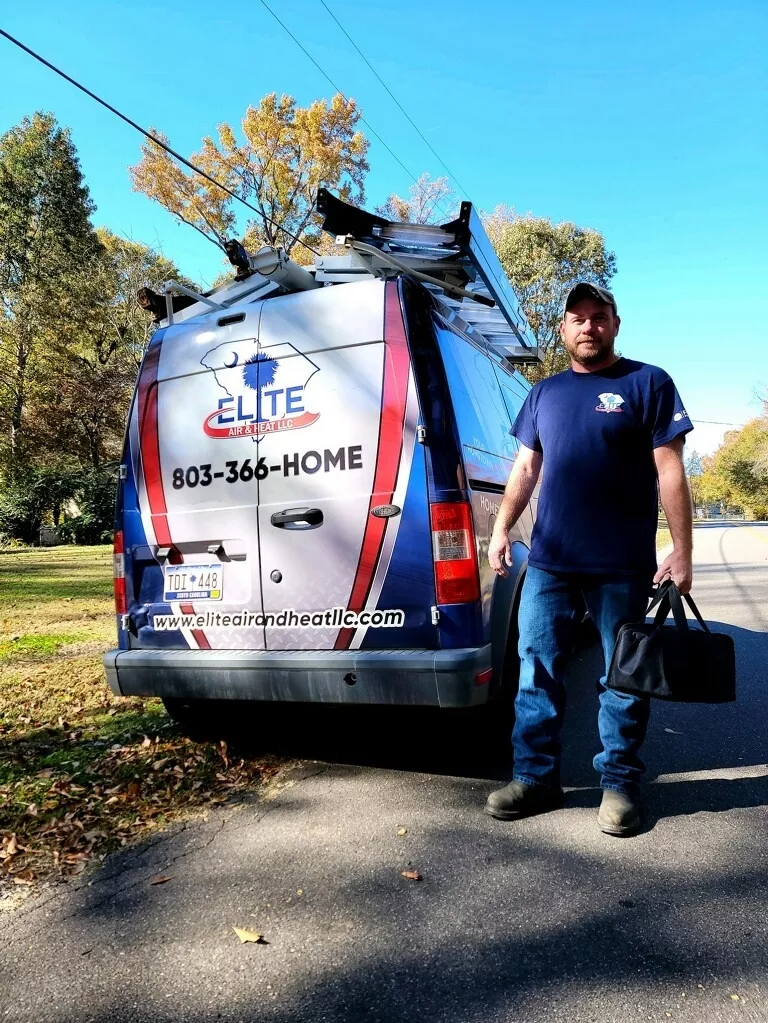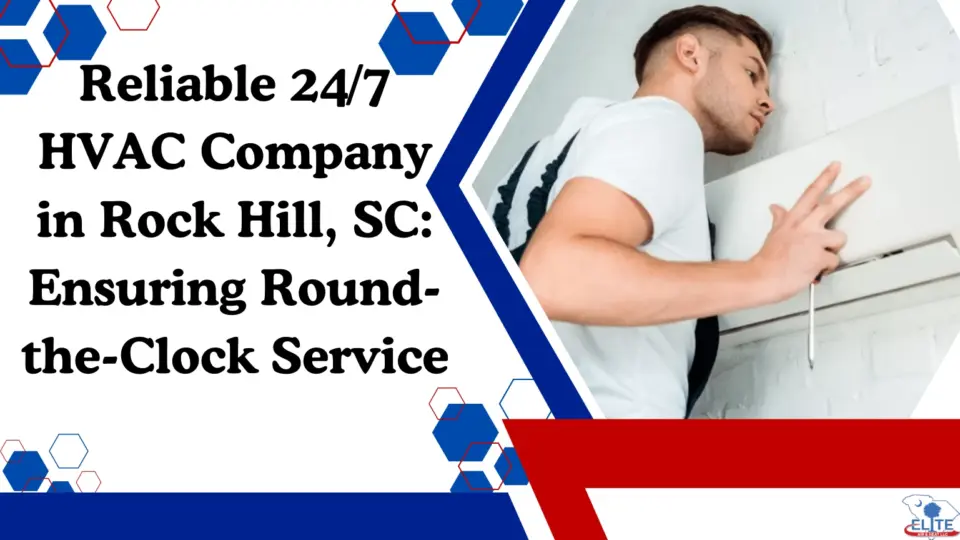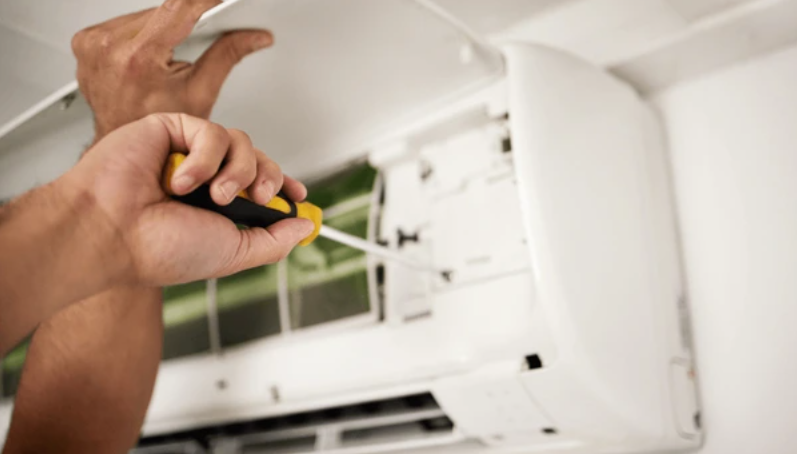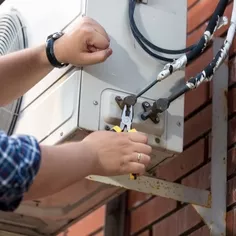We’ve all been there: it’s a sweltering summer day, the kind where even the shade feels hot, and suddenly your air conditioner stops doing what it’s supposed to do. It’s blowing air, sure, but not cold air.
So, you do what everyone does first: you put your hand up to the vent, double-check the thermostat, and mutter, “Maybe it just needs more Freon.”
Here’s the thing: in most cases, it doesn’t.
The assumption that every cooling problem comes down to low refrigerant is one of the biggest myths in home comfort. Modern air conditioning systems are complicated, delicate, and interconnected. Sometimes, the issue isn’t even about the “cold air” at all—it’s about how everything else in the system works together (or doesn’t).
Let’s pull back the curtain on what professional AC services are really fixing when your system seems to be misbehaving.
What are Common Reasons an AC Blows Warm Air Even When It Seems to Run Normally?
When you hear your air conditioner kick on but feel warm air coming out, it’s easy to panic. After all, if it’s running, shouldn’t it be cooling?
Not necessarily. AC systems can “look” fine from the outside but still struggle internally due to hidden issues.
1. Thermostat Troubles
Sometimes the problem isn’t with your AC—it’s with your thermostat. If it’s set incorrectly (say, on fan instead of cool), it will simply blow room-temperature air continuously.
Even small calibration errors can throw off the system’s performance, causing it to cool unevenly or not at all.
2. Dirty Coils or Filters
When dirt builds up on your evaporator coils, they can’t absorb heat properly. That means warm air gets trapped inside your home instead of being cooled.
Clogged filters also restrict airflow, causing the system to overheat and shut down prematurely often without you realizing it.
3. Refrigerant Leaks (Yes, but Not Always)
While refrigerant issues can cause warm air, they’re not as common as people think. A true leak doesn’t just make the air warm; it often makes the system freeze up completely.
If your outdoor unit is covered in frost or your energy bills suddenly spike, that’s when low refrigerant might be the culprit.
4. Electrical or Control Failures
The modern AC unit isn’t just mechanical; it’s electrical. If sensors, capacitors, or relays start failing, the system may “think” it’s cooling when it isn’t.
That’s why a professional technician will always check electrical components before touching refrigerant lines.
5. Airflow Blockages
Blocked vents, crushed ducts, or poorly designed ductwork can make your AC seem like it’s not cooling, when in reality, the air just isn’t reaching you.
Sometimes, the system is doing its job; you just can’t feel the results.
How Do Professional AC Services Identify Issues Beyond Low Refrigerant?
If you’ve ever watched a skilled HVAC technician work, you’ll notice they don’t just “top off the Freon” and leave. They run diagnostics like detectives.
1. They Start with the Basics — Airflow and Pressure
A good technician knows airflow is the foundation of every cooling system. They’ll check:
- Whether the fan is moving enough air through the coils.
- If ducts are sealed and balanced.
- If the blower motor is working efficiently.
Without the right airflow, even a perfectly charged system won’t cool properly.
2. They Measure Superheat and Subcooling
This is where the science kicks in. Technicians use specialized tools to measure the system’s refrigerant temperature and pressure.
These readings reveal whether the system has too much or too little refrigerant or if the problem lies somewhere else entirely. It’s like reading the AC’s vital signs.
3. They Inspect Electrical Components
Capacitors, contactors, and fuses are small but mighty. A failing capacitor can stop a compressor from running even if the rest of the system seems fine.
A professional will test these parts individually with multimeters to ensure every circuit is pulling the correct voltage.
4. They Look for Hidden Leaks (Without Guessing)
Instead of just assuming low refrigerant, technicians use leak detection tools like UV dye, electronic sensors, or nitrogen pressure tests to confirm it.
That’s because simply adding refrigerant without finding the leak is like refilling a leaky tire—it’ll go flat again soon.
5. They Evaluate System Design and Sizing
Sometimes the issue isn’t mechanical at all—it’s architectural. A system that’s too small for the home will run constantly and still fail to cool. A system that’s too large will short-cycle and leave humidity behind.
Professionals assess whether the system’s size, duct layout, and return air setup make sense for the space.
Why Can Airflow or Electrical Problems Make an AC Feel Like It is Not Cooling?
Air conditioning doesn’t actually “create” cold; it moves heat. If something interrupts that process, you’ll feel warm air even if the system is technically running.
1. Restricted Airflow = Reduced Cooling Power
Think of your AC like a pair of lungs. If the air can’t move freely through the system, it can’t breathe or cool.
Blocked vents, clogged filters, or even closed registers can choke your system’s efficiency. That strain leads to:
- Uneven cooling (some rooms hot, others freezing).
- Ice forming on the coils.
- Higher energy bills as the system overworks itself.
2. Fan Malfunctions
Your indoor and outdoor fans play a massive role in heat exchange. If either stops spinning correctly, the heat can’t escape from your home, and the air inside won’t cool.
Sometimes a capacitor failure causes the fan motor to stop altogether. Other times, it just spins too slowly—a detail only a trained eye would catch.
3. Electrical Irregularities
When homeowners think “cooling,” they picture cold air. But contractors think voltage.
Loose wiring, short circuits, or failing contactors can cause compressors to intermittently shut off, which means your system may blow cool air one minute and warm air the next.
That’s why technicians often check power connections before they even touch refrigerant lines—it’s a common source of hidden cooling issues.
4. Thermostat Glitches
Smart thermostats are convenient, but they’re not perfect. Software updates, wiring errors, or sensor drift can confuse the system into running incorrectly.
It’s like the brain sending mixed signals to a perfectly healthy body—nothing works as intended until the communication is fixed.
When Should a Homeowner Call For AC Repair Instead of Assuming It Just Needs More Freon?
If your system isn’t cooling, it’s tempting to take the “cheap fix” route and assume it just needs refrigerant. But that’s usually a temporary solution to a much bigger problem.
Here’s when to skip the guesswork and call in a pro:
1. You Hear Unusual Noises
Buzzing, rattling, or humming sounds aren’t just annoying—they’re diagnostic clues. A contractor can tell whether it’s an electrical issue, a loose part, or a failing compressor.
2. You Notice Short Cycling
If your AC turns on and off rapidly, that’s a red flag. It could mean anything from an oversized system to thermostat malfunction to low voltage supply.
3. You Smell Something Strange
Burning smells might signal electrical failure, while musty odors often mean mold growth in the evaporator coil or drain pan. Either way, you don’t want to ignore it.
4. You See Ice or Water Around the Unit
Frozen coils or pooling water can indicate restricted airflow, clogged drains, or low refrigerant—but determining which one requires tools and training.
5. The System Is Running Constantly
If your AC never seems to take a break, something’s wrong. It might be fighting duct leaks, low efficiency, or a faulty sensor.
6. Your Energy Bills Suddenly Spike
A well-functioning AC shouldn’t cause dramatic bill increases. If it does, your system is compensating for a deeper inefficiency that needs professional diagnosis.
The Real Fix Isn’t Always What You Think
Here’s the truth: modern AC systems are complex, interdependent machines. When one thing goes wrong, several other things can follow.
That’s why professional AC services don’t just fix symptoms—they solve systems.
They’re not there to “add Freon.” They’re there to restore balance: airflow, pressure, power, and performance. When done right, the result isn’t just cooler air—it’s peace of mind.
Stop Guessing. Start Cooling — Trust Elite Air & Heat LLC
At Elite Air & Heat LLC, we don’t just refill refrigerant and call it a day. We dig deeper to find out why your system isn’t cooling and fix the real issue.
Our technicians use advanced diagnostic tools to pinpoint problems quickly—whether it’s airflow, wiring, or system design and repair them with precision and care.
Because your comfort deserves more than a quick fix. It deserves real expertise.




